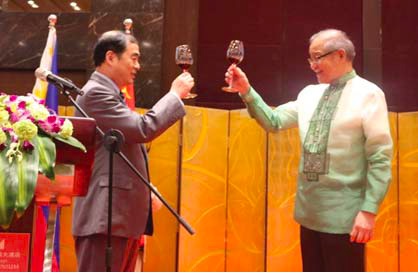China is set to redefine native-speaker teachers to include citizens of former colonies where English is used as a second language, according to Philippine Ambassador to China Jose Santiago Santa Romana.
Talking to the press after discussions with Chinese President Xi Jinping late last year, Santa Romana told the Manila Standard: ‘They expanded their definition of English-speaking countries….They said native speaking countries and countries that were colonised by these native speaking countries.”
Such news, if confirmed, will come as an immense relief to recruitment agents who have struggled to fill posts in the country’s private language schools, estimated to number at least 50,000, with native speaker teachers who meet the visa requirements of a first degree, a Tefl certificate accepted by the government and two years classroom experience.
To fill the demand, agents have taken to hiring nativespeaker school leavers with no qualifications, and sending them into the country on student visas, with the promise they can switch to a teaching visa on arrival.
The result have been waves of crackdowns, where unqualified teachers are rounded up, detained and then deported. As we report on page 7, a group of over fifty South African youngsters were rounded up and flown out of China just before Christmas.
However, teachers from ESL countries may face severe restrictions, if the agreement on Fillipino teachers signed early in January is anything to go by. Under the agreement, teachers, who must have a first degree or post-graduate degree in English teaching, are forbidden from working for the state sector and can only teach in ‘tertiary educaton.’ This is thought to mean they can only work in private language schools for adults and cannot be hired in China’s burgeoning young learner market.





